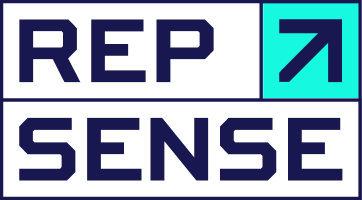How Can PR Agencies Stand Out in the Era of AI-Generated Content?
As AI-generated content slowly becomes a staple in the communications industry, the development of this new technology has hit hard PR agencies and freelancers. In-house communications teams, in many cases, use external services to simplify their daily work and outsource such tasks as writing press releases, SEO articles, or other communication materials.
If AI chatbots such as ChatGPT take these tasks off their plate, what new services can experts in the agencies offer to their clients?
What can ChatGPT do?
Let’s begin by removing the elephant from the room. Will ChatGPT steal writers' jobs and, by extension, cause problems for communication agencies?
Well, it depends. Yes, some writers might lose their gigs – that is if the text they created was not original to begin with. Yes, ChatGPT enables people who would not be writers to generate tons of new content, and some of this content is truly great – or at least good enough to publish publicly.
At the same time, ChatGPT still has problems with fact-checking, and sometimes blatantly makes up claims or entire fake events. It looks like the tool still needs to be navigated and supervised by someone who has the typical writer’s skillset. As of right now, AI chatbots are still trained on data that can increase the spread of misinformation.
At the very least, human writers must sign and follow confidentiality agreements, which is not the case with AI chatbots, as the recent leak of Samsung trade secrets shows. With the proper regulation still underway, using generative AI without proper supervision is a thrilling yet quite risky endeavor.
Of course, as the laws get set in place and tools evolve, the output quality will improve. It will be able to provide properly fact-checked content. Even right now, it can elegantly imitate the works of the best writers if the prompt is right. At some point in the near future, it will probably be able to offer original and high-quality insights just like a human writer, not just replicate information and concepts that are already out there.
Make it stand out
Whatever it is, the way you tell your story online can make all the difference.
But here is the thing. People generally don’t like doing grunt work, and it is good that AI does it for us.
Writing 250 SEO texts that contain keywords that are just barely different from each other could suck the soul out of the most resilient writers. Finding a 670th angle for a campaign about the latest asparagus harvest could break any creative copywriter. It’s okay to have technology to take care of the repetitive tasks – both for the sanity of the creatives on the team and for you as the agency leader.
ChatGPT is not a problem. It’s a solution that can help unlock the best part of creative professions – the people now can focus on research, analysis, fact-checking, and ideation. And as that happens, communication agencies will be able to provide services that truly matter, which is providing strategic guidance that helps brands grow.
Strategic interventions
With the help of ChatGPT or similar tools (and a quick prompt-writing boot camp), both in-house communications teams and agencies can generate high-quality communications materials quickly. The question is, what should they do next?
This is where, for the time being, people can still one-up the technology. Humans crave connection and quality, and our hunter-gatherer brains still want to find uniqueness in the sea of mediocre content. We care for personal stories, original examples, and humorous glimpses into someone else’s reality.
In this context, the role of the communication agency is:
To ideate original concepts and ideas that could be implemented by using generative AI.
To create source magnets, prepare original research and investigations that would be the base for new communication campaigns.
To identify spaces that would help to best connect with the key stakeholders by using high-quality and personalized content.
To provide story-driven research-based content that would stand out or complement the AI-generated baseline content.
To curate a content engine that allows reuse of content in different formats and channels – for instance, to transform press releases into SEO articles.
To help create meaningful relationships on such social media platforms as Quora and Reddit.
How can Repsense help PR agencies adapt?
Repsense creates an AI-driven online reputation analysis tool that helps to track, analyze, and improve brand’s image online. Our neural networks automatically predict user reactions to search results and analyze vast amounts of search data.
Designed with communication professionals in mind, the Repsense platform helps our partner agencies to pitch more effectively, train employees, and secure new projects using insights coming from regular reputation tracking:
Free online reputation surveys: Research your clients and create winning proposals for pitches.
Team development: Enhance your team's online reputation with regular training and gain certification upon completion.
Discover interest: Understand how key stakeholders find your clients online and help them prepare high-quality content that helps to boost their reputation.
Expert advice for client success: Learn from the experiences of others who have faced similar online reputation challenges.
Book a meeting and start tracking reputation today:


